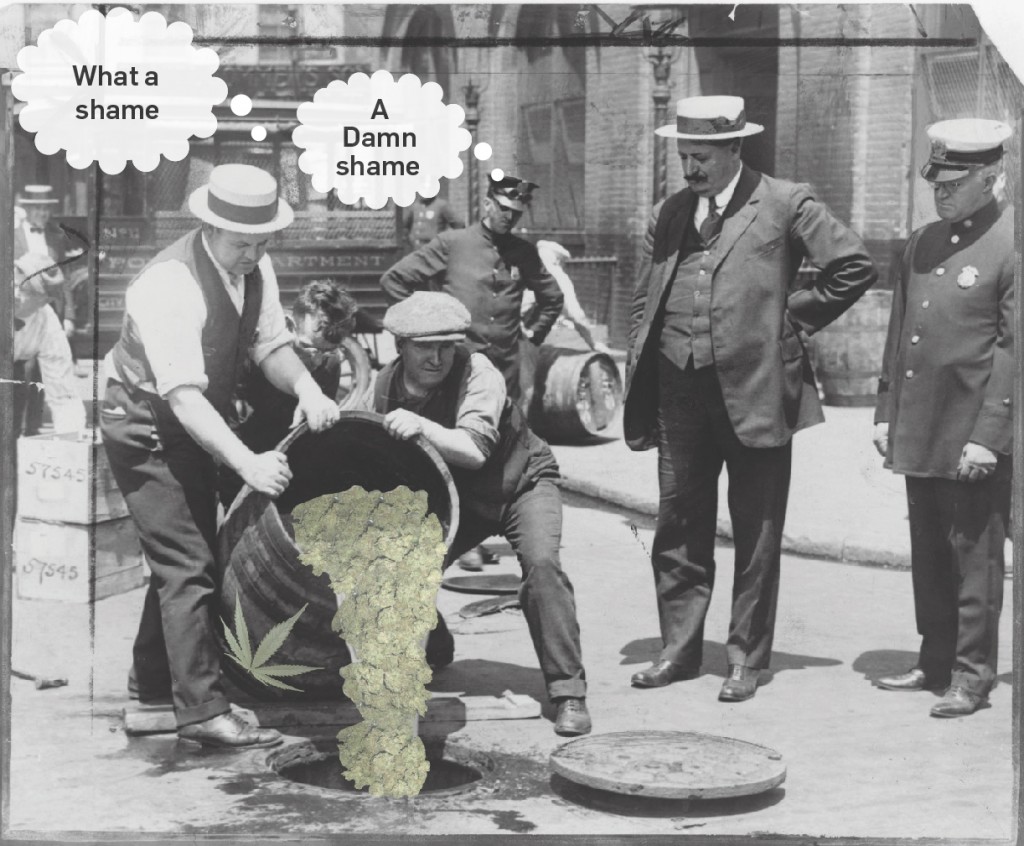 Most of us understand that the time to legalize cannabis for adult use in RI was like, yesterday. Year after year, activists have been told that the legislature prefers to “wait and see” how other states (especially Massachusetts) roll out regulations so that RI can legalize “the right way” when the time comes. Now it appears that the governor is on board to legalize this year, but Article 20 of her recent budget proposal has left most of us scratching our heads, wondering if those tasked with drafting regulations have been paying attention at all.
Most of us understand that the time to legalize cannabis for adult use in RI was like, yesterday. Year after year, activists have been told that the legislature prefers to “wait and see” how other states (especially Massachusetts) roll out regulations so that RI can legalize “the right way” when the time comes. Now it appears that the governor is on board to legalize this year, but Article 20 of her recent budget proposal has left most of us scratching our heads, wondering if those tasked with drafting regulations have been paying attention at all.
Besides the prohibition of home grow, undue financial and logistical burdens on patients, and the abhorrent distribution of cannabis industry revenue [See also: “Governor’s Proposal to Legalize Recreational Cannabis – A Self-Inflicted Wound” motifri.com/recr-cann-legal-opinion], to me, the most glaring error in Article 20 is the complete omission of any kind of social justice provision to address the harms caused by the war on marijuana.
We know that laws surrounding the criminalization of cannabis have always been disproportionately enforced on communities of color and that black Americans are almost four times as likely to be arrested for a marijuana offense than whites, despite similar usage rates. So where do we begin when it comes to addressing social justice through cannabis legalization?
- Community Reinvestment Fund to support communities harmed by the prohibition of marijuana by providing grant support to Rhode Island non-profits and state agencies for socially beneficial services, such as public health initiatives and re-entry programs for formerly incarcerated individuals — all funded by a portion of the revenue from legal cannabis.
- Social Equity Program that provides interest-free loans and technical assistance to marijuana businesses that are owned by folks from historically disadvantaged backgrounds.
- Automatic expungement for all prior low-level marijuana offenses, including cultivation and distribution.
These are just starting points, and the road to sensible cannabis policy is certainly long and evolving, but the good news is that we don’t have to reinvent the wheel here. In neighboring Massachusetts — the same place legislators have been so eager to keep an eye on — the Cannabis Control Commission has shown admirable commitment to their social equity program and has set a new standard for what state regulations should do as a bare minimum to address some of the harms of prohibition.
The lack of any kind of language addressing social justice in Article 20 shows that ensuring a just and accessible cannabis industry is not important to the powers-that-be in RI. Whether ignorance or arrogance is to blame, it is unacceptable that RI legislators aren’t having these conversations at the state house. Rep. Marcia Ranglin-Vassell’s Rhode Island Cannabis Equity Act (HB 5795) is a direct response to the governor’s proposal and provides a great start to get the discussion moving forward.
In its current iteration, the governor’s budget proposal will not eliminate the illicit market for cannabis, protect our youth or help Rhode Island patients access safe medicine. Furthermore, it will continue to perpetuate the harms of cannabis prohibition by failing to acknowledge that they even exist. If we are going to move forward with legalization this year (which we should!), then it is our responsibility to ensure that the communities most impacted by marijuana prohibition aren’t left behind in the process.
If it weren’t so disappointing, it would almost be comical that RI state leadership actually managed to propose a legalization measure that almost no one feels comfortable supporting. Even long-time legalization proponents like myself are struggling to get behind Article 20, despite it being our best chance at legalization yet. But rather than thinking “too little, too late,” we should see this attempt as a rude awakening that the RI legislators have a lot to learn when it comes to legalizing “the right way,” and it’s up to us to educate them.
A coalition of concerned citizens, community organizers and public servants will be meeting Monday, May 6 at 6pm at United Way of Rhode Island (50 Valley St, Providence) to discuss HB 5795, Article 20, and how to move forward.


